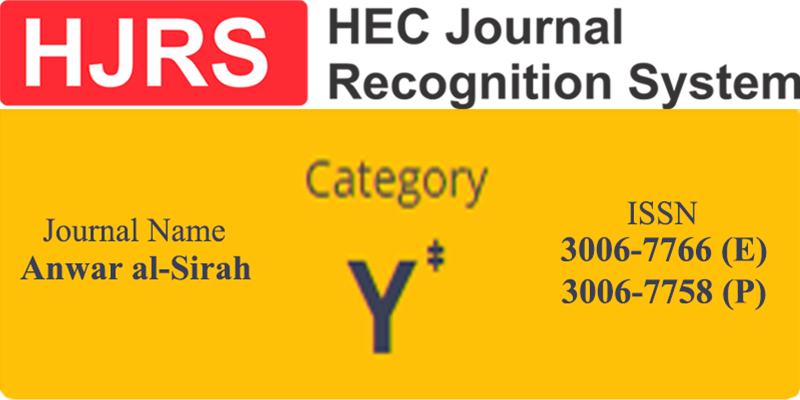Biographical Writing (Seerat Nigari) in the Period 1526–1857: A Research Study on Non-Muslim Writers of the Prophet's Life
Keywords:
Prophet Muhammad ﷺ, Non-Muslim Writers, Interfaith Understanding, Biographical Writing, Islamic TeachingsAbstract
The Mughal era, spanning from 1526 to 1857, was a golden age of intellectual and literary achievement in the Indian subcontinent. This period witnessed a remarkable confluence of cultures, where not only Muslim scholars but also non-Muslim writers contributed significantly to the intellectual landscape. Among these contributions, the biographical writings on the life of the Prophet Muhammad (ﷺ) by non-Muslim authors stand out. These authors, including Hindus, Sikhs, and others, transcended religious biases to study and document the life of the Prophet Muhammad (ﷺ) and the teachings of Islam. Their works, such as those by Lal Chand Amar Din Jagtiani, Amar Lal Wassan Mal Hangorani, Jethmal Parsram Guljarani, Shrad Seh Prakash, J.S. Dara, Lakshan Prashad, Sundar Lal, Gobind Ram Sethi Shad, and Lajpat Rai, highlight the rich cultural and religious diversity of the Mughal era. These writings not only reflect the ethos of mutual respect and intellectual dialogue but also serve as important historical records. By celebrating the Prophet’s virtues and Islamic teachings, these authors demonstrated fairness and openness, leaving a legacy of interfaith understanding that is relevant even today.
Downloads
Published
How to Cite
Issue
Section
License
Copyright (c) 2025 Muhammad Azan, Dr. Hafiz Syed Mubshar Hussain Kazmi

This work is licensed under a Creative Commons Attribution-NonCommercial 4.0 International License.
Copyrights of all research papers published in Journal of the 'ANWĀR AL-SĪRAH are held by the auther(s). However, as the 'ANWĀR AL-SĪRAH follows Open Access Policy under license CC by NC for global exchange of knowledge, readers are freely allowed to download, read and print the full text papers of 'ANWĀR AL-SĪRAH without prior permission from the 'ANWĀR AL-SĪRAH or the author(s) as long as they acknowledge/cite the 'ANWĀR AL-SĪRAH as the original source.

